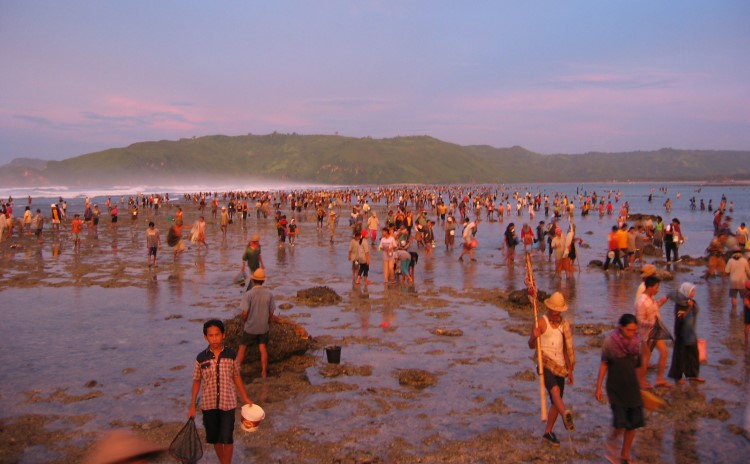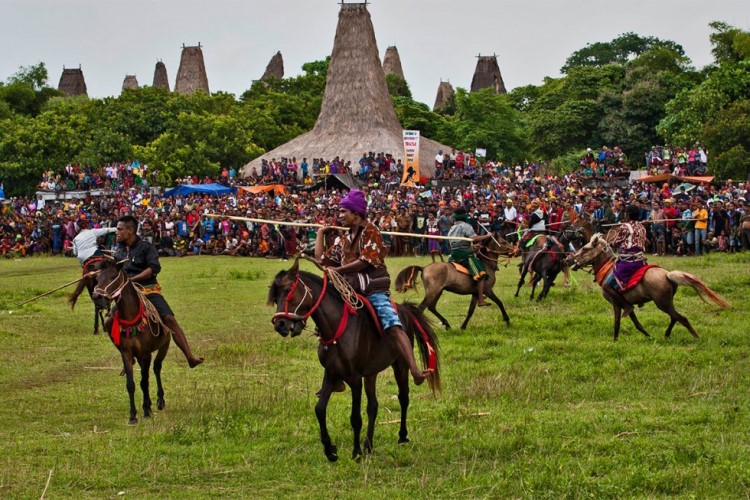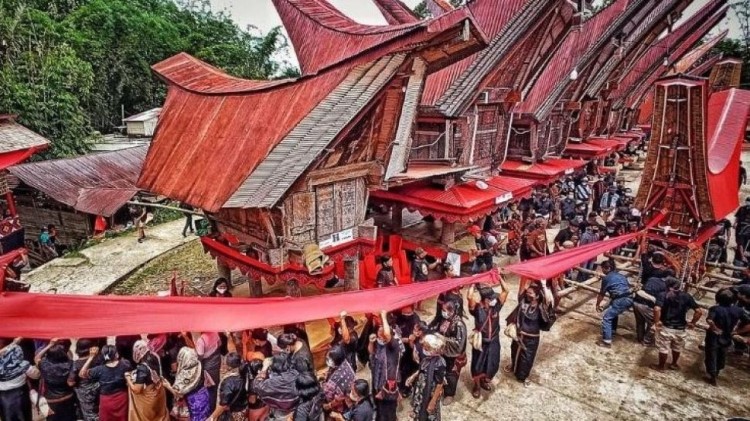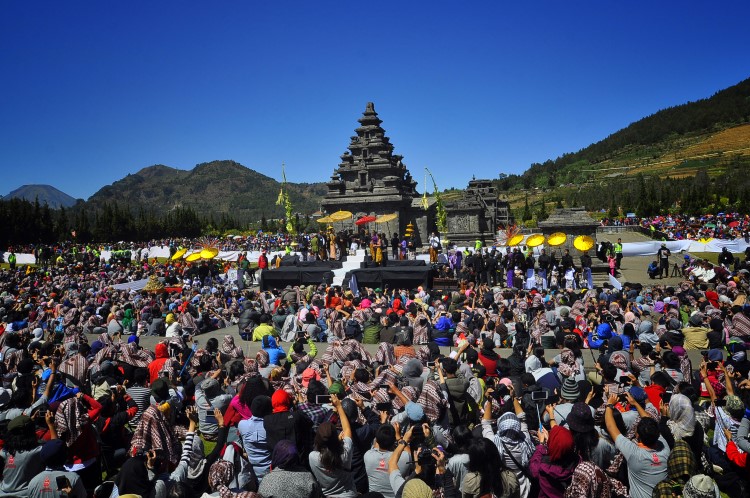Indonesia is a diverse country and thus, enjoys a rich culture and tradition. This country is home to more than two hundred and thirty million people with various religious and cultural backgrounds. This huge population makes the country a mixture of a lot of festivals, cultural events, and ceremonies.
Indonesia is populated with different ethnic groups, languages, and religions. Even the minorities have many local celebrations. This makes the list of festivals in Indonesia really long. You will never be short of choices regarding days for celebration, throughout the year there is some or other kind of special or important day that needs to be celebrated or has some kind of religious belief attached to it.
The best way to know the culture of a city is by indulging in its vibrant festivals. Read on to know the most popular festivals in Indonesia and how they are celebrated across the nation!
Contents
1. The Bau Nyale Fishing Festival
The Bau Nyale Fishing Festival is held every year on the island of Lombok, although the date is changeable and is one of the less well-known festivals in Indonesia. It is usually held around the end of February or the beginning of March and is a great sight to see if you want to learn more about the traditional Sasak culture which is unique to Lombok.
The festival is meant to honor the legend of a Sasak princess who drowned in Lombok and the main activity is catching fish in her memory. This festival is not a public holiday across Indonesia as it is unique to Lombok, but it is well worth a visit if you are in the area for a glimpse of one of the most interesting legends in the country.
2. The Pasola Festival
The Pasola Festival is unique to the Indonesian island of Sumba and is one of the fastest-paced and action-packed festivals in the archipelago. The Pasola Festival usually takes place at the end of February or the beginning of March and is made up of a traditional jousting match. Two men on horseback charge at each other and try to knock their opponent off his horse using a traditional spear.
The festival can be quite a fearsome sight if you have never seen anything like this before, but actually, it is meant to act as a blessing so that crops will flourish in the coming year and there will be enough food to eat.
3. Rambu Solo
More of a tradition than a ‘festival’ per se, Rambu Solo is followed by the Toraja people from south Sulawesi in Indonesia’s highlands. It is a funeral ceremony intended to send off the spirits of the dead to the after-world. It involves a lot of fascinating funeral rites performed by the family to reduce their own misfortunes after the death.
There are a number of processions performed, like the mo Paulo (transporting the dead body to the burial site). Tourists are welcome to visit and observe the activities. Traditionally, a buffalo is sacrificed as well as it is believed that the buffalo will guide the spirit into the afterlife. Rambu Solo generally takes place between July and September every year.
4. Nyepi
This festival commemorates the Balinese New Year. Although the date changes each year, it is generally observed in the month of March. ‘Nyepi‘ translates to ‘day of silence’ and it involves fasting, meditation and prayers. It is customary that lights be switched off (or kept dim), travel reduced to a minimum, and no work be performed on this day. In fact, it is one day in the year that the Bali airport is practically closed.
Some villages in Bali make ogoh-ogoh (demonic statues made from bamboo and cloth) to symbolize negativity, which are paraded around the ceremony before being burnt in the local cemetery. In India, nyepi is celebrated as the festival of Ugadi.
5. Dieng Culture Festival
In central Java, the children in the Dieng plateau have a fascinating genetic make-up. Upon reaching puberty, their naturally straight hair starts to form dreadlocks. When this happens, they wait till August every year for their hair to be shaved off in an elaborate ceremony that is the heart of the Dieng Culture Festival in Indonesia. This ritual of cutting off the dreadlocks is traditionally known as ruwatan anak gombel. Along with the ceremony, traditional paper lanterns are released into the sky and puppet shows are held. Java comes alive during this time, and tourists have a lovely time taking in the exciting atmosphere of the island.
Read more: The Most Popular Festivals In Iceland










